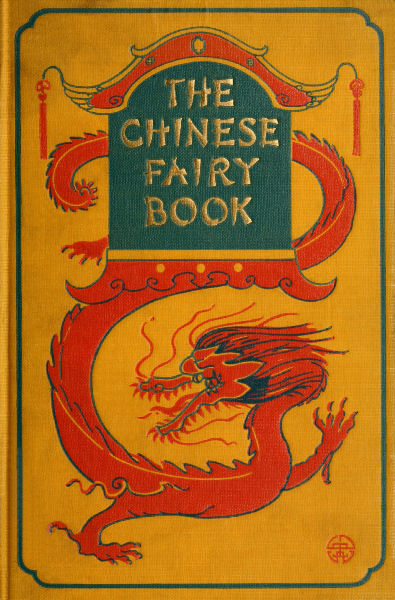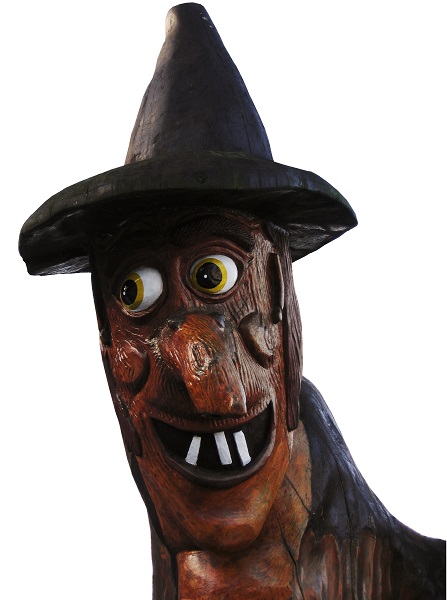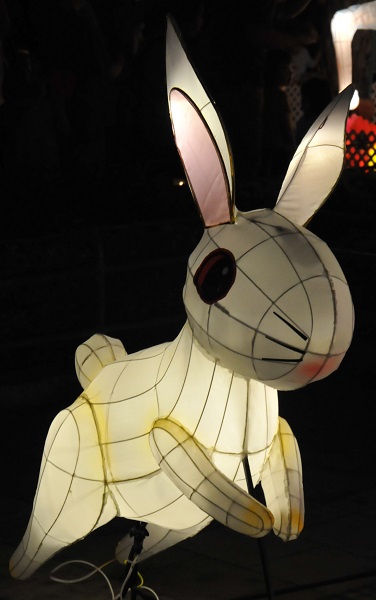THE PUNISHMENT OF GREED (The Chinese Fairy Book, 1921) by Richard Wilhelm

ONCE upon a time there lived a man south of the Yangtze-kiang. He had taken a position as a teacher in Sutschoufu, on the border of Shantung. But when he got there he found that the schoolhouse had not yet been completed. Yet a two-story building in the neighborhood had been rented, in which the teacher was to live and hold school in the meantime. This house stood outside the village, not far from the river bank. A broad plain, overgrown with tangled brush, stretched out from it on every side. The teacher was pleased with the view.
Well, one evening he was standing in the door of his house watching the sun go down. The smoke that rose from the village chimneys gradually merged with the twilight shadows. All the noises of the day had died away. Suddenly, off in the distance, along the river bank, he beheld a fiery gleam. He hurried away at once in order to see what it might be. And there, on the bank, he found a wooden coffin, from which came the radiance he had noticed. Thought the teacher to himself: “The jewels with which they adorn the dead on their journey shine by night. Perhaps there are gems in the coffin!” And greed awoke in his heart, and he forgot that a coffin is a resting-place of the dead and should be respected. He took up a large stone, broke the cover of the coffin, and bent over to look more closely. And there in the coffin lay a youth. His face was as white as paper, he wore a mourning turban on his head, his body was wrapped in hempen garments, and he wore straw sandals on his feet. The teacher was greatly frightened and turned to go away. But the corpse had already raised itself to a sitting posture. Then the teacher’s fear got the better of him, and he began to run. And the corpse climbed out of its coffin and ran after him. Fortunately the house was not far away. The teacher ran as fast as he could, flew up the steps and locked the door after him. Gradually he caught his breath again. Outside there was not a sound to be heard. So he thought that perhaps the corpse had not followed him all the way. He opened the window and peered down. The corpse was leaning against the wall of the house. Suddenly it saw that the window had been opened, and with one leap it bounded up and in through it. Overcome by terror, the teacher fell down the stairs of the house, and rolled unconscious to the bottom of the flight. And when he did so the corpse fell down on the floor of the room above.
At the time the school children had all long since gone home. And the owner of the house lived in another dwelling, so that no one knew anything about what had happened. On the following morning the children came to school as usual. They found the door locked, and when they called no one answered. Then they broke down the door and found their teacher lying unconscious on the ground. They sprinkled him with ginger, but it took a long time before he woke from his coma. When they asked he told them all that had occurred. Then they all went upstairs and took away the corpse. It was taken outside the village limits and burned, and the bones which remained were once more laid in the coffin. But the teacher said, with a sigh: “Because of a moment’s greed, I nearly lost my life!” He resigned his position, returned home and never, through all the days of his life, did he speak of gain again.
Note: The corpse wears a mourning turban and is dressed in mourning. According to local tradition, young people who die before their parents, are laid in their coffins clad in mourning, so that even in death they may do their duty and be able to mourn their parents when the latter shall have died. The tale is taken from the Su Tsi Hia.



















